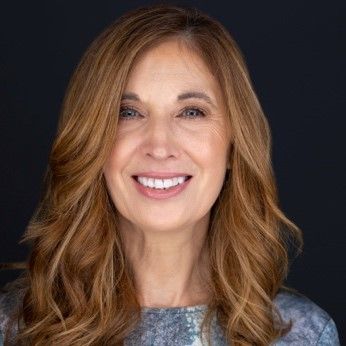International nurses day- Interview with Siobhan Dee
 17 May, 2020
17 May, 2020
About Siobhan
Siobhan graduated as a nurse from Cork University Hospital in 1987, worked in the pharmaceutical industry to senior management level and is a qualified coach. Siobhan’s interest has always been in lifestyle science and nutrition and believes we can have so much power over our own health outcomes. Siobhan has a very special interest in Diabetes since her sister was diagnosed with type 1 when she was 11 years old. She feels passionately that people with prediabetes or type 2 should be educated on everything that affects their blood-sugar and helped to avoid the trauma of some of the very serious complications. Medication alone will not solve this problem.
Siobhan runs on line lifestyle programs. Visit her website: https://www.siobhandee.com
1) What attracted you towards becoming a nurse?
My sister was diagnosed with diabetes when I was 14 she was just 11. I wanted to learn more about diabetes and healthcare so it seemed like the perfect career choice. I also could see that it was a good gateway to lots of career opportunities and travel. I took advantage of both by travelling a lot and changing career a number of times but always using my nursing as a backdrop to everything I have done!.
2) What do you find most rewarding about being a nurse?
So many things! The mixture of dealing with a vulnerable human being along with the scientific side of medicine is fantastic. You gain a sense of maturity from a young age I still remember the first injection I gave (in 1984!), my first time in charge of a ward as a newly qualified nurse, the first person that I saw that died prematurely and miraculous recoveries that I was privileged to witness. As a nurse you’re often the first person someone speaks with after having a difficult diagnosis or getting a ‘clean bill’ of health. Also the opportunity to specialise in so many areas makes it a great career – I worked in paediatrics as well as neurosurgery, 2 very different specialties but I loved them both. Healthcare is a constantly evolving science with new treatments evolving all the time. This is especially true of lifestyle associated diagnoses. We used to tell people that type 2 diabetes is a chronic lifelong condition and simply medicate them. Now we can tell people there is so much they can do to avoid a diagnoses or even reverse it. This is a gamechanger and its fantastic to involve people in their own health outcomes, much more empowering. Lifestyle medicine proving to be increasingly valuable and important. This has become even more evident in this Covid -19 era.
3) It is commonly said that 'A nurse's heart is where it starts'. You are trained to 'fix' patients, but in the process get emotionally attached to your patients. How do you deal with the emotional balance required in your profession?
Yes nurses are very human and can get attached to their patients. Like all waIks of life you will connect particularly well with some people. The great thing is that most people have a full recovery though it depends what specialist area you are working in. As you become more experienced you learn to accept that despite doing our very best we can’t always control outcomes. One of my mantras is a quote I once heard “expect everything, attach to nothing”. In my current role as a type 2 diabetes coach I am constantly asking people to make lifestyle adjustments so a lot of the responsibility and ownership lies with them. But I often believe in them more than they believe in themselves until they start to really feel and see the benefits. It’s so heart warming to see someone add years of health to their lives.
4) Were you ever in a situation where you had to handle a difficult patient?
I don’t believe there’s such in truth. Usually if someone is presenting as ‘difficult’ it’s because they are terrified, they might be dealing with a difficult diagnosis or something awful could be going on in their lives. Some nurses do have to put up with a lot, particularly in Emergency Departments at weekends but not taking it personally is key.
5) Working on the frontline during a pandemic is both physically and mentally draining. What do you think the healthcare sector can do in order to improve the wellbeing of nurses particularly at this time?
I am constantly in touch with many of my friends who are working on the frontline. I think many of them need more emotional support than they are getting, particularly those working with very sick patients constantly. They want decent healthy food in the canteen and the resources and time to treat their patients properly. While they really appreciate the clapping and support of the public what they really want is for people to take care of themselves so there is not a tsunami of very sick people as soon as restrictions are lifted. They want to be appreciated as much by hospital management and the HSE as much as the general public. Most of them work way more than the hours they are scheduled to work. They constantly put their patients before themselves and often their own health will suffer as a result. It’s an extremely stressful environment to work in, sometimes they are not recognised as the remarkable professionals they really are. It’s time to look after them so they can look after us when we need them.

How Healthy are You?
Get a picture of your current health status and habits by taking our short Health and Wellbeing Check!